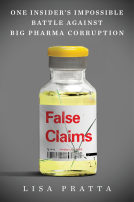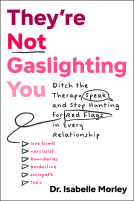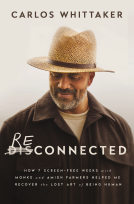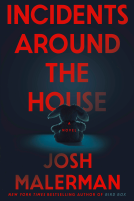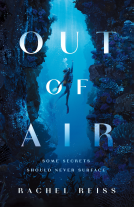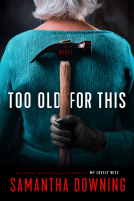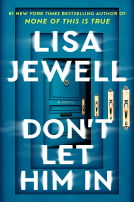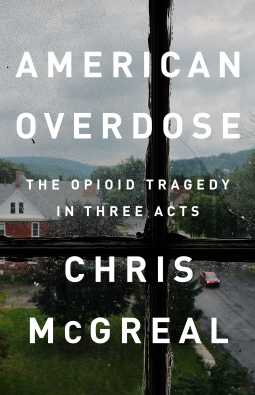
American Overdose
The Opioid Tragedy in Three Acts
by Chris McGreal
This title was previously available on NetGalley and is now archived.
Send NetGalley books directly to your Kindle or Kindle app
1
To read on a Kindle or Kindle app, please add kindle@netgalley.com as an approved email address to receive files in your Amazon account. Click here for step-by-step instructions.
2
Also find your Kindle email address within your Amazon account, and enter it here.
Pub Date Nov 13 2018 | Archive Date Apr 16 2019
Perseus Books, PublicAffairs | PublicAffairs
Talking about this book? Use #AmericanOverdose #NetGalley. More hashtag tips!
Description
The opioid epidemic has been described as "one of the greatest mistakes of modern medicine." But calling it a mistake is a generous rewriting of the history of greed, corruption, and indifference that pushed the US into consuming more than 80 percent of the world's opioid painkillers.
Journeying through lives and communities wrecked by the epidemic, Chris McGreal reveals not only how Big Pharma hooked Americans on powerfully addictive drugs, but the corrupting of medicine and public institutions that let the opioid makers get away with it.
The starting point for McGreal's deeply reported investigation is the miners promised that opioid painkillers would restore their wrecked bodies, but who became targets of "drug dealers in white coats."
A few heroic physicians warned of impending disaster. But American Overdose exposes the powerful forces they were up against, including the pharmaceutical industry's coopting of the Food and Drug Administration and Congress in the drive to push painkillers -- resulting in the resurgence of heroin cartels in the American heartland. McGreal tells the story, in terms both broad and intimate, of people hit by a catastrophe they never saw coming. Years in the making, its ruinous consequences will stretch years into the future.
Available Editions
| EDITION | Other Format |
| ISBN | 9781610398619 |
| PRICE | $27.00 (USD) |
| PAGES | 336 |
Featured Reviews
4.5 stars
(In 2012) "Doctors write more than 250 million prescriptions for opioids, enough to provide a bottle to every adult in America. The United States consumes more than 80 percent of the world's prescription narcotics."
- Scary, Scary statistic. That was 2012, not sure what the numbers are for 2018.
This was a pretty scary book. The statistics were staggering. While reading this book, I highlighted huge sections as I was blown away with the information. The Author points out how "the opioid epidemic is the deadliest drug crisis in American history; it results in 90 American deaths a day and has eviscerated communities across the country."
"The Crude calculation is that prescription pain pills have claimed more than a quarter of a million of American lives."
This book is told in three acts which highlight how Opioid use and addiction came to be. In the first section, the book examines how healthcare in the U.S. is run like a business where pharmaceutical companies profit off the pain and suffering of patients, how the policies are not strict enough and the FDA was complicit in the matter. The second section of the book, addiction is addressed. In the third section of the book, drug cartels are examined and how they exploited the market for addiction.
"For years, American doctors wrote more than a quarter-million opioid prescriptions. As Congressman Harold "Hal" Rogers put it, "That's enough painkillers to medicate every American adult around the clock for a month."
The Author writes this book using staggering statistics but also shares stories ranging from addicts, doctors, family members and those in the pharmaceutical industry. Addiction has been around for a very long time. In the "1880's, more than half of those hooked on the drug (morphine) were middle and upper class white women." Cough syrups, especially those for children and teething syrups contained morphine, cannabis and alcohol. There were no regulations back then and people could use as much as they see fit.
Pain is a part of people's lives. There are those who work very physically demanding jobs which leave them in pain day after day i.e. dancers, farmers, miners, construction workers, those in the timber industry to name a few. Painkillers help them to ease the pain, recover from injury and be able to do their job day after day. That is not to mention those who require surgery and are prescribed painkillers during their healing process. But what happens when addiction occurs? What happens when clinics pop up where an individual can pay $250.00 to see a doctor to be diagnosed with an injury so that he/she can obtain a prescription to Oxycodone? When all one needs to do is come back month after month and hand the receptionist another $250.00 and you will be given another prescription no questions asked? Shocking that such places exist.
Who is to blame for the addiction to painkillers? Prescription drug manufacturers, such as Purdue, who send out drug reps to give gifts to doctors’ offices in the form of coffee mugs, pens, food, etc., so that they can talk to the doctor about prescribing oxycodone or other medications. Are they to blame? The book states how "Purdue threw out unprecedented amounts of money into promoting Oxycontin, spending several times the advertising budgets of rivals." Are doctors to blame for prescribing or over prescribing opiates, is the FDA to blame for not having more strict rules and regulations, are addicts to blame? What can be done? What is being done?
Whoever is to blame, it is scary how addiction to prescription drugs is skyrocketing. Turn on the news and there are reports of police officers and paramedics entering homes and finding children with an unconscious or deceased parent due to overdose. It's also happening in parked cars and parks as well. Is there a solution? I don't know. Pain exists, and we need treatment for it, but where do we draw the line?
This book was educational well written. Extremely well researched and laid out. The old "Knowledge is power" saying applies here. I do believe that doctors and health care providers are cracking down on what is prescribed. Some prescriptions require that an individual show a driver’s license or some form of identification when you pick up your prescriptions. But again, there are drug cartels who can and do sell the drugs on the street. It's scary.
Thank you to Perseus Books, Public Affairs and NetGalley who provided me with a copy of this book in exchange for an honest review. All the thoughts and opinions expressed in this review are my own.
 Kyle E, Reviewer
Kyle E, Reviewer
A fascinating read about how the opioid epidemic arose. Through meticulous research, McGreal is about to identify the various factors and individuals responsible for this epidemic. McGreal explores the epidemic from all angles, and presents perfect representation of each subject and how it contributed to the epidemic. Even those readers already well versed in this subject will gain a greater knowledge of the opioid epidemic. Greed, corruption, hubris, ineptitude, denial, and deceit all contribute to the crisis we are facing today. Much of this crisis could have been avoided, or at a minimum, reduced, but now much of the damage has been done, and reversing these trends will not be an easy task. This is a must read for anyone with at least a passing interest in the opioid crisis in America wanting to gain a greater understanding of its inception.
 Shelly H, Reviewer
Shelly H, Reviewer
Interesting and illuminating do not even come close to describing this book! This is the devastating narrative of how the opiate crisis came to pass in America. Written in a unique, comprehensive and educational manner, I found myself wishing that this book was a reading requirement for all high school students to help them avoid the pitfalls of the current addiction culture. I then found myself wishing it was a requirement for ALL Americans to read. Several years ago an individual remarked to me that soon not a person on the US would be left untouched by the opiate crisis. She insisted that soon everyone would have a friend or family member suffering from addiction. I remember thinking that this woman was quite mistaken. Three years on, I believe her prediction has come to pass.
In American Overdose, Chris McGreal sets the framework for what would lead to arguably the biggest addiction crisis in America, founded on misguided policies, trust, corruption, booming profits and, of course, big pharma. Have other authors tackled this same topic? Sure; but not with the finesse and meticulousness of Chris McGreal. This book not only provides the “hows” and “whys” behind the crisis, it also provides up-close and personal glimpses into the lives of real people affected by pill mills, dishonorable doctors and a healthcare system off its tracks. Gripping, enthralling and informative. I rate this book a solid five stars.
Readers who liked this book also liked:
Patti Callahan Henry
General Fiction (Adult), Historical Fiction, Women's Fiction

